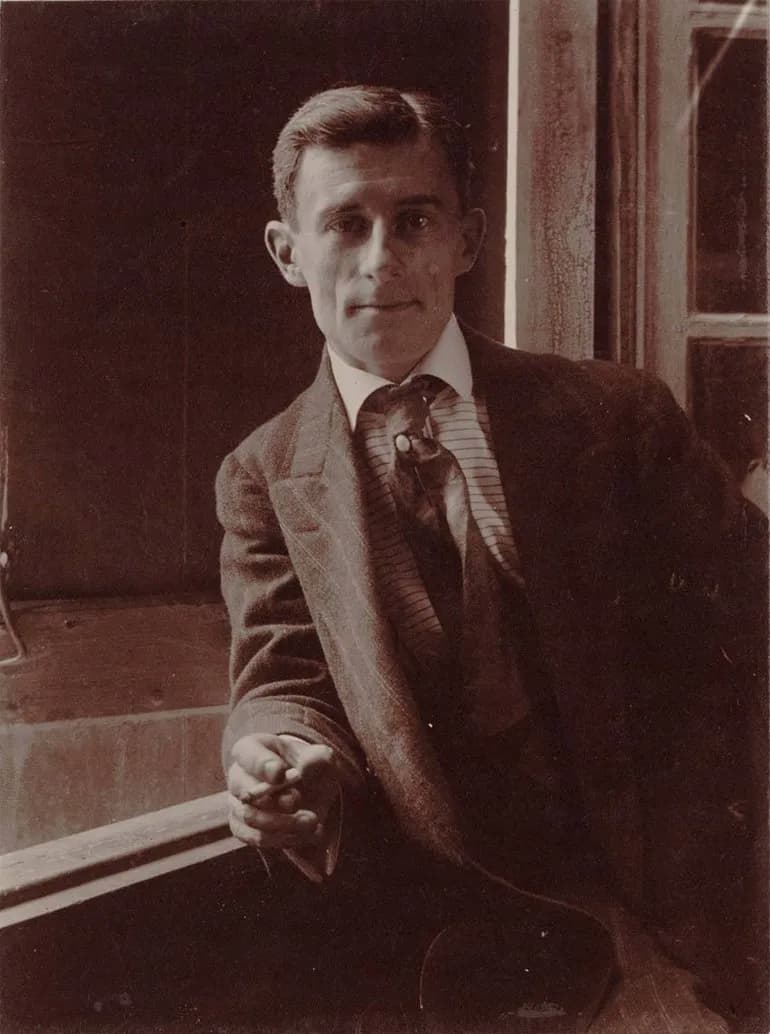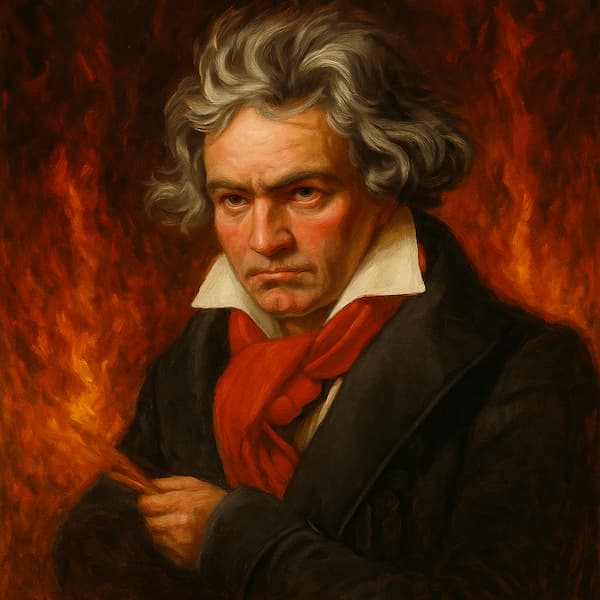The Shepherd School of Music at Rice University in Houston, Texas, has a reputation for excellence in no small part due to their illustrious faculty. To name a few, they include Norman Fischer, the Herbert S. Autrey Professor of Cello and director of chamber music, Kathleen Winkler, Cho-Liang Lin, James Dunham, Timothy Pitts, Brinton Averil Smith, and Jon Kimura Parker. It has just been announced that acclaimed cellist Valentin Radutiu will join the faculty as Professor of Cello in July of 2025, succeeding Desmond Hoebig. Formerly the Cleveland Orchestra Principal Cello, Hoebig will be retiring from teaching at Rice University after more than 30 years.
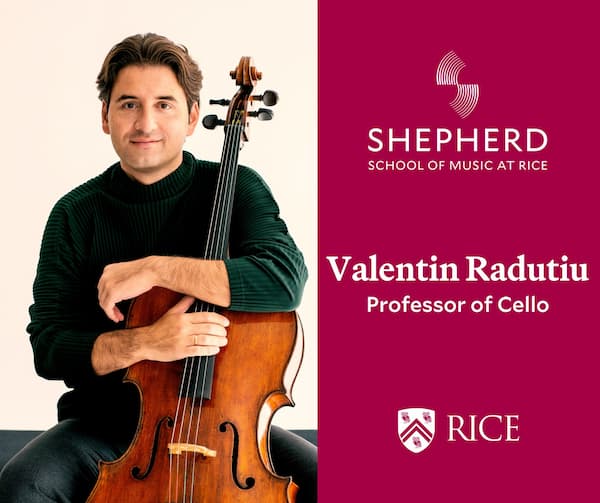
Radutiu is currently Principal Cello of the Deutsches Symphonie-Orchester Berlin and professor of cello at the Hochschule für Musik in Dresden. He comes by his cello playing honestly! He was born in Munich in 1986 and began the cello with his father, also a cellist, who joined the Munich Radio Orchestra after fleeing Communist Romania. Valentin’s studies continued in Salzburg, Vienna, and Berlin, with Clemens Hagen, Heinrich Schiff, and David Geringas.
Brinton Averil Smith, a wonderful cellist and the principal cello of the Houston Symphony relates the following story about how he discovered Radutiu.
“About six years ago, as I was preparing a listening link email for my students in Aspen, I went on a YouTube crawl to find a video of a modern player that I thought exemplified great musicianship coming from a modern player (to make the point that I didn’t only worship dead people since most of the links I sent them were of players from a bygone era.) I came across an extraordinarily good video from a cellist I had never heard of, Valentin Radutiu, and shared it with my students. I also reached out to him and began a friendly correspondence that finally culminated with having the chance to be together in person last spring at Rice, and today, I am thrilled to announce that he will be our new colleague, replacing our beloved Des Hoebig…”
I reached out to Valentin, and he told me he believes his YouTube recording of Wieniawski Scherzo Tarantelle Op. 16, originally for violin and piano, is what Brinton Smith stumbled upon. I think you’ll agree it’s quite astonishing playing. The dazzling virtuosic piece was written in 1855 when Wieniawski’s own violin career was at its peak.
Wieniawski: Scherzo Tarantelle Op. 16
Valentin Radutiu is a prize winner of the 2012 International Enescu Competition in Bucharest. Named “one of the great cello talents of our time” (Süddeutsche Zeitung, 15.10.2013), hear what he has to say about that experience.
Valentin Răduțiu’s message for young musicians | Enescu Competition 2022
Radutiu has performed all over Europe with orchestras including the Deutsches Symphonie-Orchester Berlin, the Czech Philharmonic, the Deutsche Radiophilharmonie Saarbrücken, the Symphonieorchester of the MDR Leipzig, as well as the chamber orchestras of the SWR Stuttgart, Münchener Kammerorchester, Camerata Salzburg, Bucharest’s Filarmonica Enescu, and the Radio-Symphony-Orchestra, the Latvian National Symphony Orchestra, Hong Kong Sinfonietta, Prague Philharmonia, and Stuttgarter Kammerorchester. Invitations from prestigious festivals continue to come in, such as the Schleswig-Holstein Musik Festival, Heidelberger Frühling, Cellobiennale Amsterdam, and the Hong Kong Arts Festival.
Radutiu’s first recording of the Haydn Concerto in C major impressed his colleagues, and in this short feature produced a decade ago, they speak about him in glowing terms.
Der Cellist Valentin Radutiu im Portrait
Radutiu has recorded eight albums of music, including the Haydn Concerto in D in addition to the C Major Concerto, and some lesser-known works such as CPE Bach Concerto, the Cassadó Concerto after Mozart’s Horn Concerto, and the Robert Cassadesus Concerto in C minor as well as the complete works for cello and piano by Romanian composer George Enescu.
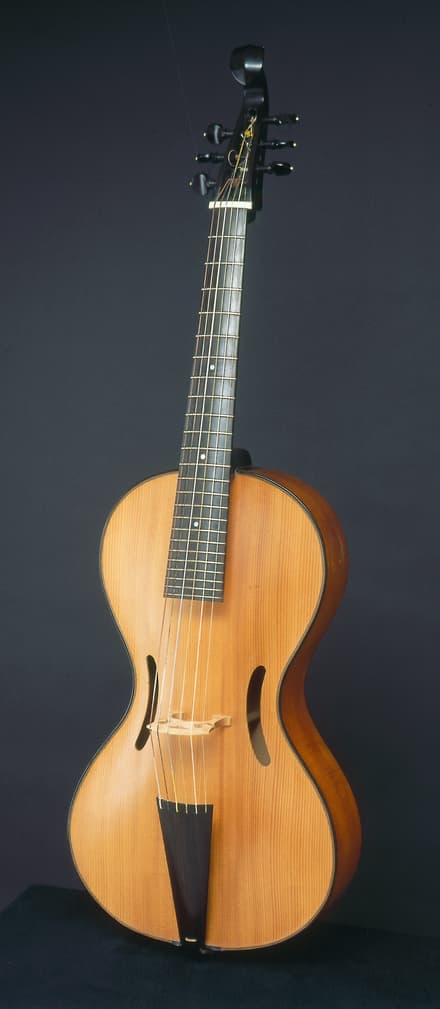
Arpeggione
The Rice University announcement includes this link to a recital featuring Radutiu with Viktoria Vassilenko, his superb partner, from the Cellissimo Festival 2022. The playing of Franz Schubert Arpeggione Sonata D. 821 is exquisite. Written for the almost forgotten instrument (slightly smaller than a cello and more like a bowed guitar with frets), it’s a challenging piece to play, as it must be pristine and doesn’t necessarily lie perfectly on the cello (no frets!) Radutiu plays it with panache, with a gorgeous sound, and a masterful interpretation.
Cellissimo Festival 2022 / Recital of Valentin Radutiu and Viktoria Vassilenko
The recital continues with a lovely rendition of Robert Schumann Fantasiestücke, op. 73, and the Bohuslav Martinu Variations on a Theme of Rossini, H. 290, a piece I played often, and I can tell you Radutiu brings the house down with his virtuoso and effortless technique and his golden tone.
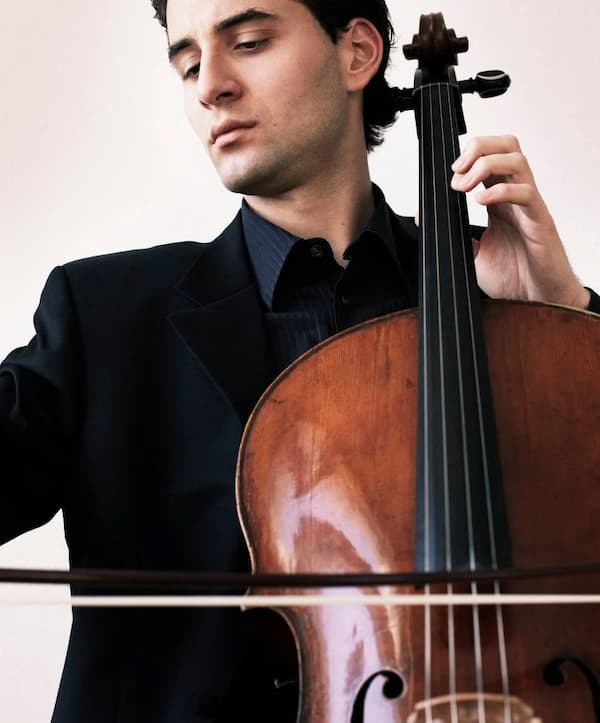
Valentin Radutiu
Listen also to this heartrending opening of the Sonata in A major with pianist Per Rundberg by French composer César Franck. Originally for violin but frequently performed by cellists, he opens tender and melancholy while with a questioning air. The second movement responds explosively in the piano, and then, the cello enters equally brilliantly. But the heartbreaking and exquisite commentary returns. Radutiu plays it with great sensitivity before it once again bursts with passion. In the last moments of the movement, the cello hesitates, descending into the lowest register, rhythmically unsteady, before ending in brilliant, repeated notes and a final flourish. It’s wonderful playing.
César Franck: Violin Sonata in A Major, M. 8 (arr. J. Delsart for cello) (Valentin Radutiu, cello; Per Rundberg, piano)
I am excited to hear more from Radutiu and to witness his influence on future generations of cellists. I hope you are too.
For more of the best in classical music, sign up for our E-Newsletter

